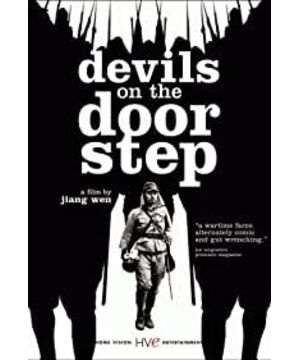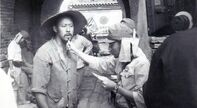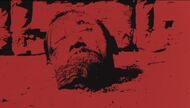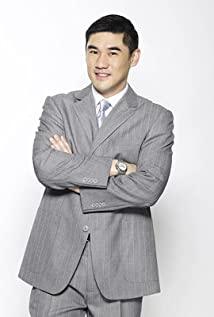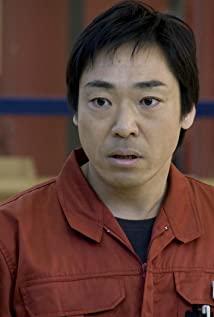I think it’s easy to make a movie to get addicted to the mouth, and it can often be eager for quick success and profit, but after things pass, it neither works nor makes the audience really think about it.
------- Jiang Wen
Do you believe what Jiang Wen said? After watching the promotion of
The color of the movie is very similar to
Soderberg said: "The Devil Is Coming" is a classic work that will make many future movies feel insignificant...Such praise is not excessive. I believe that Jiang Wen's sincere devotion to "The Devil is Coming" is An infuriating force. In the movie, the Japanese from the officer, the soldier, and even the comfort woman with only one lens, use the original Japanese, many details, exquisite pictures, sharp lens processing, and There is a plot setting that slowly tends to the climax. Jiang Wen's outstanding expression ability in the movie has made this movie reach an unprecedented peak. Jiang Wen abandoned the tall image of the hero in the traditional anti-Japanese film, and adopted a kind of childhood The fate of the characters reflects the ugly human nature of the Japanese army's tyranny, atrocities, and madness. They treat each other with kindness but end up falling to the ground. The tragic end of the junior and the villagers is in another general layer, pointing to the stupid behavior of the government. The generals of the national army played by Wu Dawei even exposed this shameless and self-deception. This is < The Devil is Coming>The greatest and most profound meaning.
There is a section in the middle of the movie that Ma Dasan couldn't kill two prisoners, so he went out of the village, crossed the river, crossed the river, and went up the mountain. After coming to the mountain and entering the city, I found the legendary sharpshooter with a hundred steps and pierced in the past, and asked him to borrow a knife to kill. But humorously, the shooter told Ma Dasan that he was the master of the gun, and it was impossible to use it. Killing people with a knife, but the village is small, just shoot a shot, and the Japanese devils will come and kill him, so he can't take this task at all. You can't find the gunman, you can't find the swordman. Just when Ma Dasan was furious, the gunman took him to the legendary capital's first sharp swordsman, Liu Ye. This is what the gunman said to Jiang Wen: "On the way to ascend to heaven. , Master Liu gave them a step, the knife started and fell, like a light breeze, floating unconsciously, and spontaneously, do you know how they are grateful to Master Liu? You must know that those who were cut by Master Liu The head that comes down must turn around nine times, face Master Liu, and blink three times (At this time, Master Liu, who is taking a bath with dementia, adds: The corner of the mouth is swayed). After the call, Ma Dasan fell to the ground in shock.
Smiling at Jiuquan, Ma Dasan finally died with a smile, but what did he laugh at? Was it the foolish kindness of the villagers in the quiet village, or the absurdity of human nature under war. I don’t think it is. Ma Dasan should have laughed. Two points, one is to laugh at the Japanese, and the heavy ridicule is at the crime that Japanese soldiers had in China at the time. The murderous crime of humanity is also enough to make the Japanese ashamed and unable to explain it. On the other hand, Ma Dasan laughed, but it was the people who watched the excitement and promoted the official policy of benevolence, justice and morality. Their ignorant ideas will eventually be taught as profoundly as him.
As a film set in the War of Resistance Against Japan, Jiang Wen’s intentions and expressions are very innovative. To say it is even more extreme, it offends certain people. One of the most violent characters in the film is not Ma Dasan. It's a crippled old man named Qi Ye. He is an old man with crippled legs. The old man has a bleak face and sleeps in bed all day long. His favorite sentence from beginning to end is: Fuck the fucking egg, I'm going to strangle one with one hand. , Buried them alive!!! The rhetoric always made me think that it was just a slogan... And when everyone was immersed in the trap of the Japanese army deliberately setting up a celebration party, Qi Ye stubbornly tried his best to get it. At the barrel of the gun, when the Japanese army began the massacre, he crawled out of the room with difficulty, shot a shot, and killed a Japanese, but in the end he was chopped off one hand (the broken hand was pinched on the other The Japanese soldiers' necks were stiff and motionless) and killed. It was a shocking massacre. Here, I don't want to go into details. The tragedy exposed by the footage in the movie is suffocating pain. The Devil is Coming>The role of Qi Ye has a deep meaning. On the surface, he is just a madman, who can do nothing except anger. But in the end, we suddenly realized that among all the people, he was the only one. He is the most sober. He does not believe that the Japanese can have a good thing, and can understand the kindness of repaying kindness. Therefore, after all the villagers have been deceived and murdered by the brutality, Martha, who originally believed in kindness and kindness, was murdered. Third, since then he has also become another fierce Seventh Master. In Ma Dasan's originally weak and cowardly body, it has become full of blood, anger, and madness that the Seventh Master can only have! This is a power of struggle. , Is also the only weapon..
Going deeper and thinking about it, I will be surprised to find that Jiang Wen’s
Jiang Wen said: This film not only reproduces the atrocities of the Japanese army, but also out of a kind of guarding responsibility. I want to tell Japanese audiences through this film: You must really face this history and don't want to deny it again. I I also want to warn the Chinese audience: In the face of evil people, we cannot report kindness for no reason. In the face of these facts that have happened, both the Chinese and the Japanese should have a correct understanding...Through this passage, let us Turning from the movie to real life, it is not difficult to find that what Jiang Wen is really doing is not to restore history and eulogize, but to write a tragic reality that people dare not look directly at. He stands in the corner with coldness and indifference. But the passionate and high-pitched scenes, on the one hand, let the bloody brutality of the Japanese tell us a real history that we cannot forget, on the other hand, they laugh at some rational to ignorant people in real life, let us think deeply, after all How should we treat that unforgettable past correctly, and we should calmly understand what kind of neighbor we are facing.
View more about Devils on the Doorstep reviews


